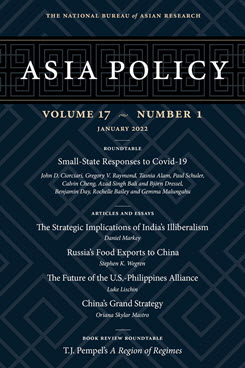The Strategic Implications of India’s Illiberalism and Democratic Erosion
This article assesses the international implications of illiberalism and democratic erosion in India’s domestic politics and considers whether and how Washington should recalibrate its strategic partnership with New Delhi.
EXECUTIVE SUMMARY
MAIN ARGUMENT
The U.S.-India relationship is founded on common interests, including a deepening strategic convergence with respect to China. U.S. policymakers also cite a shared commitment to liberal democratic governance as a central reason for closer alignment with India. Yet India’s prevailing political culture is not best defined as “liberal,” and under the leadership of Prime Minister Narendra Modi, India’s commitment to democracy is increasingly in doubt. Erosion is most obvious in the areas of tightened media controls, limits on civil society organizations, and reduced protections for minorities. The evolving character of India’s domestic politics is likely to influence India’s foreign policy aims and decision-making processes, hard-power capabilities, and the way India relates to other states, including the U.S.
POLICY IMPLICATIONS
- The U.S.-India strategic partnership is strong and likely to remain durable because of shared concerns about China’s power and influence. Yet because India’s domestic political culture and international worldview reflect unique historical, ideological, and cultural wellsprings, U.S. policymakers should not assume U.S.-India convergence on liberal aims, including India’s commitment to the defense of the liberal international order.
- Rhetorically, the Biden administration has attached great significance to liberal democracy and thus risks politically costly criticism if it appears to ignore undemocratic trends in India. To avoid hypocrisy and, most importantly, to set realistic expectations for U.S.-India partnership, U.S. officials should convey their concerns about India’s political trajectory forthrightly but bearing in mind that the U.S. has little influence over India’s internal politics.
- Further erosion of democratic institutions and practices would, on balance, make India a less powerful and predictable international actor, and would reduce its capacity for reassurance and building partnerships with other states, including the U.S.
- The U.S. government should monitor political developments in India. If democratic erosion worsens, managing U.S. relations with India will demand a tricky balancing act that preserves and even strengthens partnership in areas deemed critical to geopolitical competition with China without extending U.S.-India cooperation into areas that would mistake India for an entirely like-minded U.S. treaty ally.
Daniel Markey is a Senior Advisor on South Asia at the United States Institute of Peace. His most recent book is China’s Western Horizon (2020).
Note: The author wishes to thank Jacob Larsen and Zaara Wakeel for their research assistance and two anonymous Asia Policy reviewers for their insightful feedback.
About Asia Policy
Asia Policy is a peer-reviewed scholarly journal presenting policy-relevant academic research on the Asia-Pacific that draws clear and concise conclusions useful to today’s policymakers. Asia Policy is published quarterly in January, April, July, and October and accepts submissions on a rolling basis. Learn more


